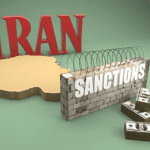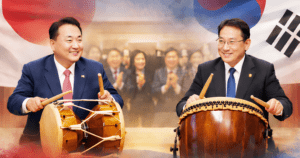For decades, South Korea was at the forefront of international adoption, sending approximately 200,000 children abroad since the 1950s. This practice, once seen as a benevolent effort to provide better lives for orphaned and abandoned children, has come under intense scrutiny. Recent investigations have unveiled systemic fraud, coercion, and human rights violations that have left indelible marks on countless families worldwide. The investigation into South Korea’s fraudulent international adoption practices began in December 2022, when the Truth and Reconciliation Commission launched an inquiry into 34 cases of suspected adoption fraud.
By May 2023, the investigation expanded to include 237 more cases, bringing the total to 271 cases under review. Over the course of the investigation, evidence emerged of systemic malpractice, including falsified records, coerced adoptions, and identity manipulation. In March 2025, the commission released its findings, confirming that fraud and human rights violations occurred in at least 56 out of 367 cases reviewed. The revelations have sparked global outrage, prompting calls for accountability, reparations for affected adoptees, and stricter regulations to prevent similar injustices in the future.
The Korean War (1950-1953) left the nation devastated, with thousands of children orphaned or separated from their families. In the war’s aftermath, international adoption emerged as a solution to address the immediate humanitarian crisis. Initially, the focus was on mixed-race children fathered by foreign soldiers, who faced societal discrimination in a homogenous Korean society.
As South Korea underwent rapid industrialization in the subsequent decades, the government viewed international adoption as a means to manage population growth and reduce welfare costs. This perspective led to policies that prioritized adoption over developing domestic social welfare systems. Private adoption agencies, operating with minimal oversight, capitalized on this environment, facilitating the adoption of thousands of children to Western countries, particularly the United States and Europe.
A comprehensive investigation by South Korea’s Truth and Reconciliation Commission has shed light on the darker aspects of this adoption system. The commission’s findings indicate that many children were falsely declared orphans, with their identities manipulated to expedite their adoption abroad. In numerous cases, birth parents were misled or coerced into relinquishing their children, unaware that they would be sent overseas.
One poignant example is that of Adam Crapser, a Korean adoptee who was deported from the United States due to his adoptive parents’ failure to secure his citizenship. Crapser’s ordeal underscores the systemic failures within the adoption process, where agencies neglected essential legal procedures, leaving adoptees vulnerable in their adoptive countries.
International Implications
The ramifications of these revelations extend beyond South Korea’s borders. Countries that participated in these adoption programs are now grappling with their roles in perpetuating a flawed system. Investigations have revealed that Western governments and adoption agencies were aware of unethical practices but continued to facilitate adoptions, driven by the demand for children and geopolitical considerations during the Cold War era.
In response, several European nations, including Denmark, Norway, and the Netherlands, have initiated inquiries into past adoption practices and are reevaluating their adoption policies. These countries are also considering reparations and support for affected adoptees seeking to reconnect with their birth families.
Behind the statistics are deeply personal stories of loss, identity struggles, and resilience. Many adoptees, upon discovering discrepancies in their adoption records, have embarked on arduous journeys to uncover their origins. These journeys often reveal painful truths about coercion, identity falsification, and the challenges of navigating between two cultures. For instance, some adoptees have found that their birth parents were told they had died shortly after birth, a tactic used to facilitate swift adoptions. Others have discovered that their identities were switched with other children, complicating efforts to trace their biological families.
The uncovering of these injustices has led to a global outcry for accountability and systemic reform. Adoptees and advocacy groups are urging the South Korean government to issue formal apologies, provide restitution to affected families, and implement measures to prevent future abuses. There is also a push for greater transparency in adoption records and support for adoptees seeking to trace their origins. In response, the South Korean government has acknowledged its role in the flawed system and has expressed a commitment to address the issues raised by the commission. Efforts are underway to improve the accuracy of adoption records, offer support services to adoptees, and ensure stricter oversight of adoption practices moving forward.
The revelations of widespread fraud and malpractice in South Korea’s international adoption program have prompted a global reckoning with the ethical complexities of intercountry adoption. As nations reflect on their roles in this system, there is a collective responsibility to ensure that the rights and well-being of children are paramount in any adoption process. The stories of those affected serve as poignant reminders of the need for vigilance, transparency, and compassion in safeguarding the most vulnerable members of society.


















